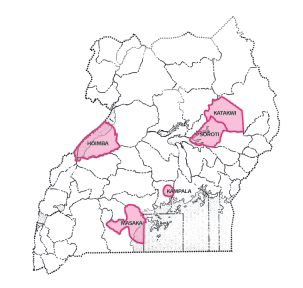 So you want to be an END7 activist? It’s easy! Your school is a great place to start your own END7 campaign. Who doesn’t have spare change to donate?
So you want to be an END7 activist? It’s easy! Your school is a great place to start your own END7 campaign. Who doesn’t have spare change to donate?
Neglected tropical diseases are neglected because not many people have heard of them. The first step to getting people excited about your project is to do a little educating.
Some ideas:
- Show our during an assembly or before a class (health, social studies and science are all good classes to try!)
- Use , , stickers, or banners to get people talking about NTDs. Here’s an example of a you can print out. Or do something .
- Use social media to share information about NTDs. Here’s a handy tweet bank for you to use. You can set up your own Twitter account for your campaign or create a Facebook event to invite people to.
Once people know a little more about what NTDs are and how just 50 cents helps treat & protect a child for a whole year, you’re ready to start your fundraiser.
Some ideas that you can do at school:
For many of these events you can charge a small entry fee, ask for sponsors, or just provide people with the opportunity to give money by setting up donation jars or laptops where people can donate online. You can also send the link around via email with a note encouraging your friends to get involved.
If you hosted a fundraiser, you can send your donation to us the following ways:
- Use our online donation page.
- Send us a check.

 Soil-transmitted helminths (STHs)
Soil-transmitted helminths (STHs)
 The specific remit was to examine issues of ownership, integration, coordination, implementation and impact, with a particular focus on the unique strengths and problems of these access PPPs as distinct from other comparable programs where drugs are competitively procured. Fieldwork visits were made to five districts in Uganda –Hoima, Kampala, Katakwi, Masaka and Soroti – selected on the basis of active implementation of the PPP programs […]
The specific remit was to examine issues of ownership, integration, coordination, implementation and impact, with a particular focus on the unique strengths and problems of these access PPPs as distinct from other comparable programs where drugs are competitively procured. Fieldwork visits were made to five districts in Uganda –Hoima, Kampala, Katakwi, Masaka and Soroti – selected on the basis of active implementation of the PPP programs […]